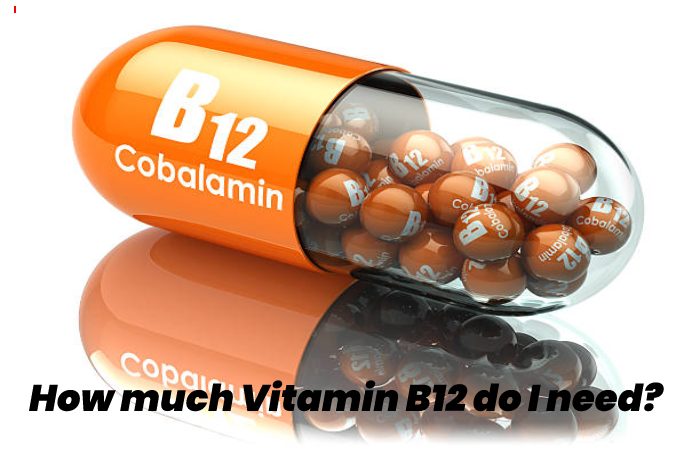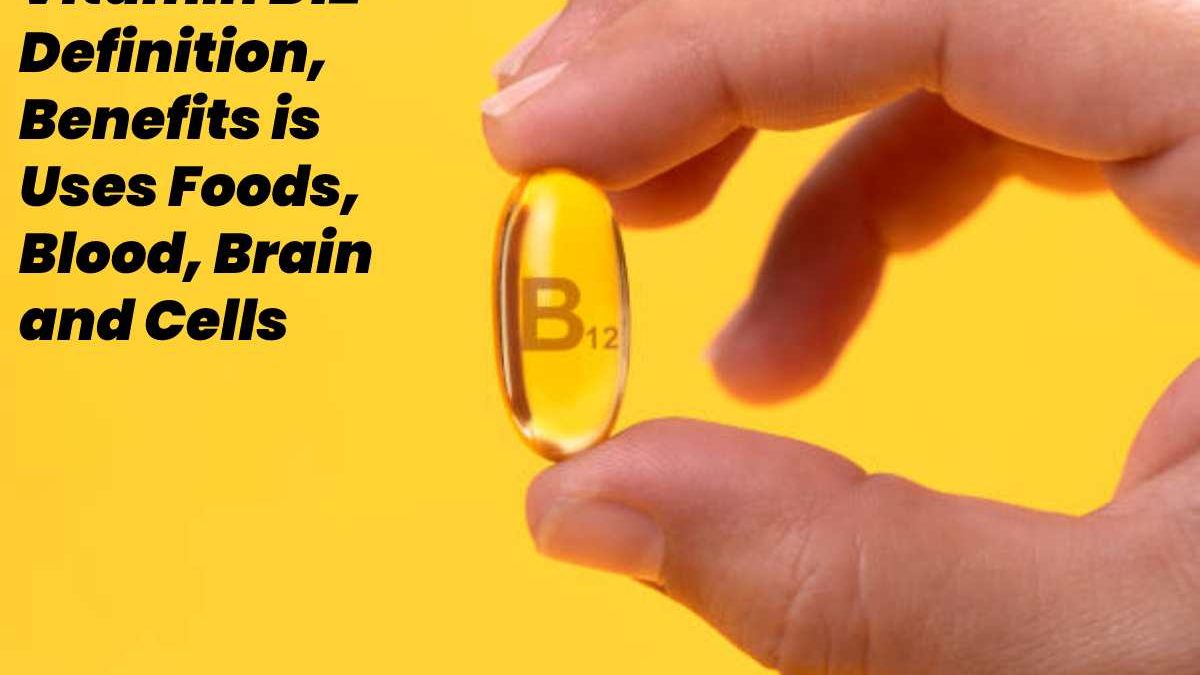Table of Contents
Vitamin B12 Definition
Vitamin B12 is a necessary vitamin found in meat, fish, and dairy foods. It can also be completed in a lab and often take other B vitamins. Vitamin B12 is required to function and develop many parts of the body, including the brain, nerves, and blood cells.
The body needs a vitamin B complex nutrient in small amounts to function and stay healthy. It helps make red blood cells, DNA, RNA, energy, and tissue and keeps nerve cells healthy. It is found in liver, beef, eggs, poultry, shellfish, milk, and milk products.
ALSO READ: FEMALE FITNESS
Insufficient can cause certain types of anaemia (a condition in which the number of red blood cells is lower than usual) and neurological disorders. water-soluble (can dissolve in water) and must be taken daily. It is being studied along with folate in preventing and treating some types of cancer and is also called cyanocobalamin and cobalamin.
Properties of Vitamin B12
Vitamin B12 is a fraction of the “B” collection of vitamins, like the other vitamins in the complex. These are essential for many functions of the body, such as:
- Vital for protein biotransformation
- Produce glucose from carbohydrates consumed by the body and thus increase energy
- Prevent pernicious anemia
- form red blood cells
- Maintain the central nervous system in optimal condition
- apple cider venigar
Benefits of Vitamin B12
This vitamin has a lot of influence on the health of our body. Among them, we can highlight:
Prevents anaemia: This achieves thanks to its direct intervention in the formation of erythropoiesis (red blood cells) and the synthesis of haemoglobin contained in the blood.
Avoid fatigue: It plays a fundamental role in transforming carbohydrates into glucose, which produces energy, preventing the rapid decrease in body strength in activities that require significant effort.
Improves the functioning of the immune system: The intake of B12 raises the body’s defences against bacterial microorganisms and virulent agents. B12 makes this possible because it actively increases the presence of folic acid in the body.
It improves skin texture: It enhances the skin’s health by acting on the regeneration of the dermis and epidermis cells. Similarly, it enhances the appearance of nails and hair.
Regenerate the muscles: The consumption of vitamin B12 positively influences the regeneration of muscles due to its action in the transformation of fatty acids into energy. This process finally allows an adequate production of genetic tissue that replaces the worn or dead.
Vitamin B12: Vitamin for Blood, Brain and Cells
Vitamin B12 is essential for cells, blood formation, the brain, and more. Still, we often do not realize that our reserves have been slowly depleting for years. What can help: control the supply of vitamins and counteract it with nutrition or supplements.
The lack considers a typical disorder of vegans, but it does not only affect them. One thing is clear: The vitamin is mainly found in foods of animal origin. Anyone who consumes vegan food should do so with food supplements. But even some vegetarians and omnivores lack. Massive amounts are found mainly in meat offal and fish, in foods not on the menu of many meat-eaters. Risk groups also include pregnant women, the elderly, and people with pancreatitis and type 2 diabetes mellitus.
How much Vitamin B12 do I need?

The amount of vitamin B12 a being needs per day depends on their age. The recommended average daily amounts, expressed in micrograms (mcg), for different ages, are as follows:
- Stage of life recommended amount
- Babies up to 6 months 4mcg
- Babies from 7 to 12 months 5mcg
- Kids from 1 to 3 years 9mcg
- Children from 4 to 8 years old 2mcg
- Children from 9 to 13 years old 8mcg
- Adolescents from 14 to 18 years old 4mcg
- Adults 4mcg
- Pregnant women and adolescents 6mcg
- Breastfeeding women and adolescents 8mcg
What Foods Contain Vitamin B12?
Vitamin B12 is naturally current in many foods of animal origin and certain foods fortified with added vitamin B12. Plant-based foods do not contain if they are fortified. To eat the recommended amounts, you have to eat a variety of foods such as:
- Fish, meat, poultry, eggs, milk and additional dairy products cover vitamin B12.
- Clams and complaint liver are some of the best bases of vitamin B12.
- Some breakfast cereals, nutritional yeasts, and other fortified food products have added vitamin B12.
- Read the nutrition label on the product’s external link disclaimer to determine if a food contains added vitamin B12. If the food naturally contains this vitamin, manufacturers are not required to list it on the label.
What are the [Vitamin B12] Dietary Supplements out There?
Vitamin B12 is found in multivitamin and multimineral supplements, B-complex supplements, and supplements containing. It usually originates in a form called cyanocobalamin. Other common presentations are adenosyl cobalamin, methyl cobalamin and hydroxocobalamin. Vitamin B12 is also obtainable in a form that dissolves under the tongue (called sublingual ). Research studies have expos that one form of vitamin B12 in supplements is better than the others.
The amount of vitamin B12 that supplements contain is highly variable. Some provide much higher than recommended, such as 500 mcg or 1,000 mcg, although the body only absorbs a small percentage of this amount. These doses consider harmless. Read the product information label to determine how much is in a supplement.
Injectable can give if a doctor prescribes it. also exists by prescription as a gel sprayed into the nose. In general, this form is use to treat deficiency.
What Occurs if I don’t get enough Vitamin B12?
The body stores between 1,000 and 2,000 times the amount of ingesting daily. For this reason, the symptoms of vitamin B12 deficiency can take several years to manifest.
If you are deficient in vitamin B12, you may feel tired or weak. These are symptoms of megaloblastic anaemia, which is characteristic of vitamin B12 deficiency. In addition, the person may have pale skin, palpitations, loss of appetite, weight loss, and infertility. Your hands and feet can feel numb or tingly, which is a sign of nerve problems. Other symptoms of deficiency are balance problems, depression, confusion, dementia, poor memory, and ulcerations in the aperture or tongue.
In infants, cyphers of a deficiency include growth retardation, delays in reaching characteristic developmental milestones, and megaloblastic anaemia.
Vitamin B12 deficiency can cause injury to the nervous system, even in people who do not have megaloblastic anaemia. Therefore, it is essential to treat any deficiency as soon as possible.
What are some of the Health Effects of [Vitamin B12]?
Scientists study to determine how it affects health. Here are some examples of the results of these investigations.
Cancer
Several studies have shown that people with high have increased cancer risk. However, other research has shown that cancer risk is higher in people with low levels or that levels do not influence cancer risk. More systematic evidence needs to determine whether levels affect cancer risk.
Heart disease and stroke
Homo cysteine is linked to an increased risk of heart attack or stroke. supplements (and other B vitamins) lower homocysteine levels in the blood. However, despite falling homocysteine, several research studies have found that these vitamins do not reduce the risk of cardiovascular disease or stroke.
Dementia and cognitive function
Most studies have shown that low blood levels do not affect the risk of cognitive decline in older people, regardless of whether they have dementia or Alzheimer’s disease. Further clinical trials need to determine the effects of supplementation on cognitive function in older adults.
Energy and Endurance
Manufacturers often promote supplements to increase energy, athletic performance, and endurance. However, does not provide these benefits for people who get enough from their food.
Conclusion
It is a nutrient that helps maintain the health of neurons and blood. In addition, it contributes to the formation of deoxyribonucleic acid (DNA), the genetic material present in all cells. It also helps prevent megaloblastic anaemia, a blood disorder that causes tiredness and weakness.
Also Read: Running – Definition, Benefits, Is Walking better than Running, and More

